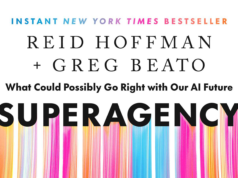Independent publishers are terrified of platform dependency these days, and for good reason: According to Parse.ly, Facebook is the No. 1 source of traffic to their sites.
Facebook and Google together account for 65 percent of digital ad revenue, according to Pew’s State of the News Media 2016 report. To put that in perspective, that’s up from around 0 percent just 10 years ago. Facebook is absolutely crushing them in mobile, too, where the real user growth is — and there, it’s not even close.
That’s the reality, and it’s led a lot of publishers to conclude they’d be better off not competing with Facebook for eyeballs, choosing instead to forsake the exclusivity of their own properties and publish directly to the social network. Many side observers now believe we will soon witness the end of the dot-com — i.e. the wholesale migration of content away from independent publisher properties and onto Facebook.
The thing is, Facebook has demonstrated recently that it’s willing to change its algorithm whenever it wants, and that publishers can’t rely on it as a stable channel. A savior for publishers Facebook is not. Indeed, publishers’ anxiety is both very real and very justified.
How did this happen? The obvious interpretation is that Facebook has the scale, the traffic and, thus, the leverage. But that’s not all there is to it. Facebook has actually been a pioneer in finding the right way to monetize their audience without pissing it off. And this is where its recent moves against ad blocking become very, very interesting.
First, it’s worth reviewing what Facebook is doing right in its audience monetization strategy:
- Fewer ads: Facebook decided to show people fewer ads and thus are able to charge more for them. They actually come out with more revenue than if they showed more ads for less money. Fewer ads also helps the user experience, thus reducing the motivation for users to block.
- Non-interruptive ads: Facebook has pioneered the non-interruptive advertising experience. Facebook literally changed the way we think about an ad, from an interruptive display unit on the right side, to an actual piece of sponsored content in-feed that looks and feels just like the non-advertising content around it.
- Safe, lean ads: Facebook doesn’t let ads weigh on load times. This is a big one — and a major reason for Instant Articles. Slow page-load times on publisher properties are largely connected to the serving and tracking of ads, and the way users respond is to install ad blockers. That’s particularly sensitive on mobile, where data plans are at stake.
- Controllable ad experience: And now, Facebook is leading the charge in providing users with precise controls over which ads they see, and from whom. That was the part that many people missed recently, when Facebook “blocked the blockers.” In so doing, they also introduced precise controls for users that allow them to dictate the kinds of ads they see.
Facebook is signaling to the broader advertising and publishing world that the future lies in fewer ads, more respect for consumer privacy and more deference to a user’s preferences.
Many publishers are actually making solid efforts at delivering this type of experience themselves, but such efforts are going to waste because of the “binary” and unsophisticated nature of most ad blockers. By blocking all ads on all sites, these blockers treat all publishers as the lowest common denominator, throwing premium publishers (and Facebook) in with the worst-offending sites on the web — the ones that present the risk of malware, that invade privacy, that drag on load times, that ruin the user’s experience.
So while many have interpreted Facebook’s move to “block the blockers” as a sign that Facebook is prioritizing its relationship to advertisers over users, it’s actually far more subtle. Facebook is trying to find — and own — the middle ground that neither advertisers nor publishers have been able to inhabit successfully.
Odds are that Facebook does find that middle ground. The question is whether the rest of the digital ecosystem can find it and maintain it independently. At the moment, the binary nature of ad blockers has forced each side (publishers and users) into entrenched positions that render the good faith attempts obsolete and leave the underlying causes of blocking unaddressed.
If publishers respond by blocking blockers, or by increasing their ad load, users will only block more. And if users continue using indiscriminate blockers, publishers will have few good choices left.
Far from simply waging war on the blockers, Facebook is trying to carve out the only middle ground that will be left when the war is over.
Featured Image: Massimiliano Alessandro / EyeEm/Getty Images
![[Video] Samsung Teases ‘AI Home Experience’ Ahead of](https://loginby.com/itnews/wp-content/uploads/2025/03/1742985292_Video-Samsung-Teases-‘AI-Home-Experience’-Ahead-of-238x178.jpg)




